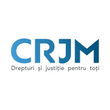Achiziții de bunuri și contractări de servicii
- Detalii
- Categorie: Achiziție bunuri, Contractare Servicii
Invitation to Tender (External Evaluation)
Informațiile prezentate în articolul de mai jos pot să nu mai fie actuale sau să nu mai reflecte activitățile și programele curente. Anunțul este păstrat în arhivă pentru a asigura transparența și accesul public la informațiile despre inițiativele și proiectele implementate anterior.
Terms of reference for External Evaluation
TITLE
Caritas Moldova EA 16/23 Multisectoral support for conflict-affected people in Moldova
Total Value
1,034,069 Euro
Project Duration:
May 1st 2023 – May 31st 2024
BACKGROUND
The EA 16/2023 was launched as an occurrent need to offer support to vulnerable living in Moldova: Ukrainian refugees and local people, affected economically by the war in Ukraine and as a result forced to face enormous financial challenges.
The project targets extremely vulnerable people (50% Ukrainians and 50% Moldovan): persons with disabilities, persons with chronic illness, terminally ill person, single carer family with at least one infant (up to 2 years), single carer family with 2+ children, family with 3+ children, elderly person (65+ years), pregnant or lactating woman.
Through this project Caritas Moldova has provided dignified housing in three locations: Chisinau, Ungheni, and Orhei. The refugees residing in centers managed by Caritas Moldova were provided with food, clean, safe housing, child-friendly areas, and WASH NFIs.
Through the activity of 5 mobile teams Caritas Moldova provided basic goods and services to conflict affected people on national level. Thus, the beneficiaries of this project received access to food (in kind or vouchers), tailored hygiene kits (according to age and gender), vouchers for medicines and medical services, and NFIs.
The project stakeholders: Caritas Internationalis Member Organizations, local authorities and parishes.
OBJECTIVES
The final evaluation will focus on the following key objectives:
- Assess the relevance, appropriateness, effectiveness’, accountability and impact/sustainability of the programme
- Assess the effectiveness of the leadership of Caritas Moldova in coordinating the dioceses and Caritas Internationalis Member Organizations within the Ukrainian Refugee Crisis
- Identify lessons learned, best practices and recommendations to inform future programme design.
KEY QUESTIONS
Relevance/appropriateness
- Was programme design based on an impartial assessment of needs? Are needs assessments disaggregated by age, sex and disability? Do they include people’s needs, vulnerabilities and capacities?
- Did the assistance provided by Caritas Moldova meet the needs of the affected population? Were the persons most in need identified, selected, and supported by the programme?
- Which parts of the assistance were the most appropriate and why? Which were least appropriate and why? Were activities aligned with the affected population’s needs and priorities?
Effectiveness
- Was the response timely?
- What internal and external factors affected the speed of the response?
- Was the internal organizational and managerial structure of the project effective?
- Were there appropriate systems in place to monitor activities, outputs and outcomes of the programme? Did monitoring outcomes inform programme adjustments/revisions?
- Did the project activities lead towards the achievement of the expected results/indicators as set in the Results Framework?
Accountability
- To what extent has the affected population been involved in the design or implementation of the programme?
- Were appropriate systems of downwards accountability (participation, information sharing and feedback/complaints), put in place and used by project participants? Were project participants aware of the feedback/complaint’s mechanism?
- Were project participants and communities aware of selection criteria?
- Were project participants and communities aware of the assistance they should receive?
Coordination
- How effective was Caritas Moldova in coordinating internally?
- How effective was Caritas Moldova in coordinating with external stakeholders such as other agencies, organizations, the local and national government?
- What aspects of coordination could be improved in the future and how?
Impact/Sustainability
- Has the Caritas response strengthened local capacities?
- What are the intended and unintended, positive and negative effects of the project?
- What, if any, aspects of the programme will have a longer-term impact?
METHODOLOGY
The final evaluation will rely on two main evaluation stages 1. design phase 2. field phase
Design phase
- The evaluator(s) will undertake a desk review of programme documentation including planning documents, project proposals, situation reports and quarterly reports
- The evaluator(s) will review other monitoring and reporting documents from secondary sources (i.e. UNHCR reports).
- If appropriate, the evaluator(s) will obtain feedback from the CI Humanitarian Department on the most relevant sites to visit.
Field phase
- After the design phase, the evaluator(s) will conduct fieldwork to collect and analyses data in order to answer the evaluation questions
- Data collection methods should be inclusive and utilize a range of methods, including focus group discussions and key informant interviews and with key project stakeholders. The use of surveys and other remote data collection tools should also be explored by the evaluators to maximize data collection
- The evaluator(s) should ensure a systematic triangulation of data sources and data collection methods and tools, and seek to validate data through regular exchanges with programme staff where appropriate.
EXPECTED OUTPUTS
The evaluator(s) should produce the following key deliverables:
- Final Evaluation Report in English language to be submitted to Caritas Moldova latest July 15th 2024.
Final Evaluation Report will include:
Executive Summary
Background
Introduction
Context
Description of Methodology
Main findings
Conclusions inclusive of best practices and lessons learned
Recommendations.
USE OF THE EVALUATION RESULTS
The intended audience for the evaluation is Caritas Moldova key staff, including senior management, Caritas Internationalis Member Organizations who have supported the programme, the Caritas Internationalis Humanitarian Department and the Caritas Confederation. Evaluation findings will be shared with programme participants as appropriate.
REQUIRED COMPETENCIES
The competencies required from the External Evaluator are:
- Advanced degree in social sciences, political sciences, economics, development or related fields
- Experience in leading evaluations, especially in the field of humanitarian response.
- Ability to use participatory approaches to evaluation
- Experience of operational management of humanitarian/development programs
- Good knowledge of the local context
- Good analytical skills
- Excellent writing skills in English Language
- Understanding of the Catholic Church and Caritas Moldova structure and mission.
CONSULTANT’S PROPOSAL
Proposals should include:
- Proposed evaluation methodology;
- Description of deliverables and a timeline (according to the file from TIME FRIME);
- Description of the relevant experience of the bidder, including previous experience in evaluating similar projects;
- CV(s) of the team (the consultant can be a physical or a juridical person and can form a team of 1 or 2 experts with relevant experience);
- References and recommendations;
- A financial proposal will be presented in MDL, including all related costs, including taxes and the cost implication for other evaluators if any and the CV(s) of evaluator(s).
TIME FRAME
Add as many lines as needed to prepare Time Frame plan (see Annex 1).
Selection of best offer
Selection committee with qualified members will select the best offer regarding price and quality. Price and quality will be weighted with 70% (price) and 30 % (quality).
Interested external evaluators are requested to send a “Letter of Interest” (offer) no later than June 06, 2024 to Caritas Moldova Office: 30/1 Gheorghe Asachi Street, Chisinau, MD-2004, Moldova or offer should be sent by e-mail at the address: procurement@caritas.md , tel.+37378800597.
Please ensure that you receive a confirmation message that your files have been received. In the absence of this, Caritas Moldova Charitable Foundation is not responsible for electronic files sent but not received.
Caritas Moldova reserves the right to cancel and/or suspend the procurement procedure, in whole or in part, and to reject all tenders at any time prior to the award of the contract, including in cases where it is unable to provide financial cover or in cases where tenders do not meet the requirements set out in this documentation, without thereby creating any obligations or liability towards tenderers.
Promo gratuit















